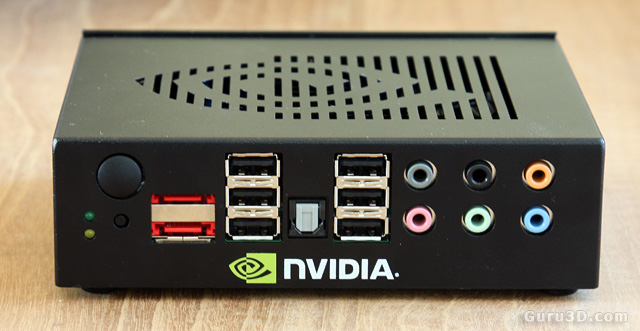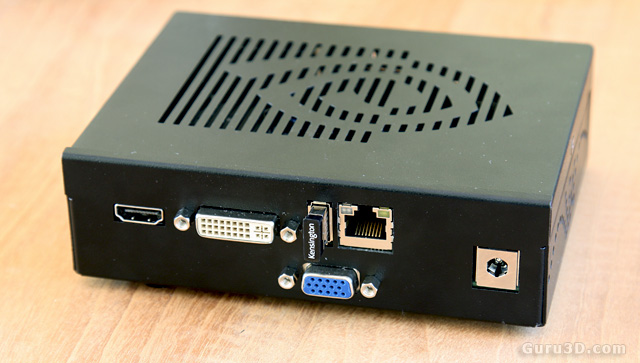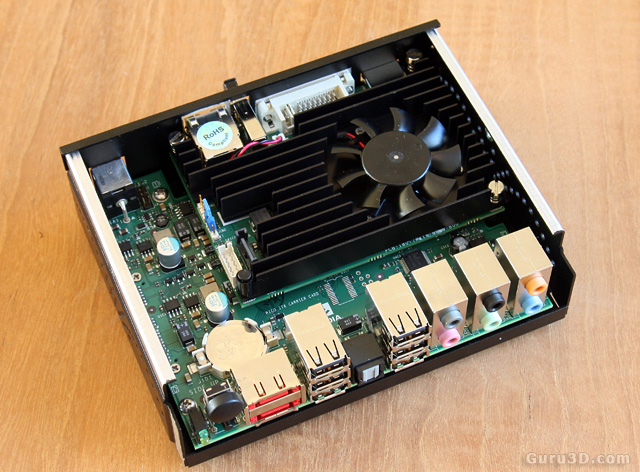NVIDIA ION reference mini-PC
Photos - NVIDIA ION reference mini-PC
On the next few pages we'll show you some photos. The images were taken at 4272 x 2848 pixels and then scaled down. The camera used was a Canon 450D - 12 MegaPixel.
Okay, let's have a look at it.

Our test subject is that. A a complete ION mini computer with 2GB of memory, a 2.5" SATA hard drive, and a single-core Atom 230 processor. It looks small, because it is small at 10 cm x 7.2 cm (3.94 x 2.83). Let's zoom in a little though.

This photo is pretty spot on real-size if you use a 21"ish monitor.
And this little cutie is powerful enough to play HD video (8 - 40 Mbps H.264). A notable feature also is that Ion has full support for 8-channel LPCM over HDMI. If that doesn't suit your needs, Optical TOSLINK or even analog connectors are possible. Connectivity wise it's more capable than most motherboards offer.
This prototype comes with six USB ports, optical digital and analogue audio connectors, and a pair of e-SATA ports at the front.

The rear shows VGA, DVI and HDMI outputs, a further USB port with Bluetooth dongle and an Ethernet jack (10/100/1000). Our sample to my surprise had the 4 Watt Intel Atom 230 embedded. Quite surprising as I really expected a Dual-core Atom 330. The 230 is a single core 1.6GHz Intel Atom processor.
|
Model |
Clock Rate | Cache | FSB | Platform |
|---|---|---|---|---|
| Atom 230 | 1.60 GHz | 512 kB | 533 MHz | Nettops |
Mind you that within Windows the processor shows up as dual-core. These are represented as logical, not physical processors. The Atom 230 processor only has one core yet it's embedding Hyper-Threading technology, the processor has two logical processors this way. It helps making the operating system faster to respond to commands. The Atom micro-architecture covers almost all of the current command extensions: MMX, SSE, SSE2, SSE3 and SSSE3.

Once we open it up, we spot a a Pico-ITX motherboard. To understand it's size, on a 20" monitor it's roughly the same size as the photo; 10 cm x 7.2 cm (3.94 x 2.83). The Pico-ITX form-factor was actually introduced by VIA to take advantage of their C7 and Eden processors.
The PCB has been kept very clean and simple. The Intel Atom CPU and GeForce 9400M are placed next to each other. Located under the PCB we find a 2.5 HDD. This entire PC (really that's what it is) can run Windows Vista decent enough and as we'll show has no problems playing HD content.
NVIDIA's GeForce 9400M core logic MCP has 16 integrated GeForce graphics "Shader" cores. Let's have a peek at what this thing actually can do.
